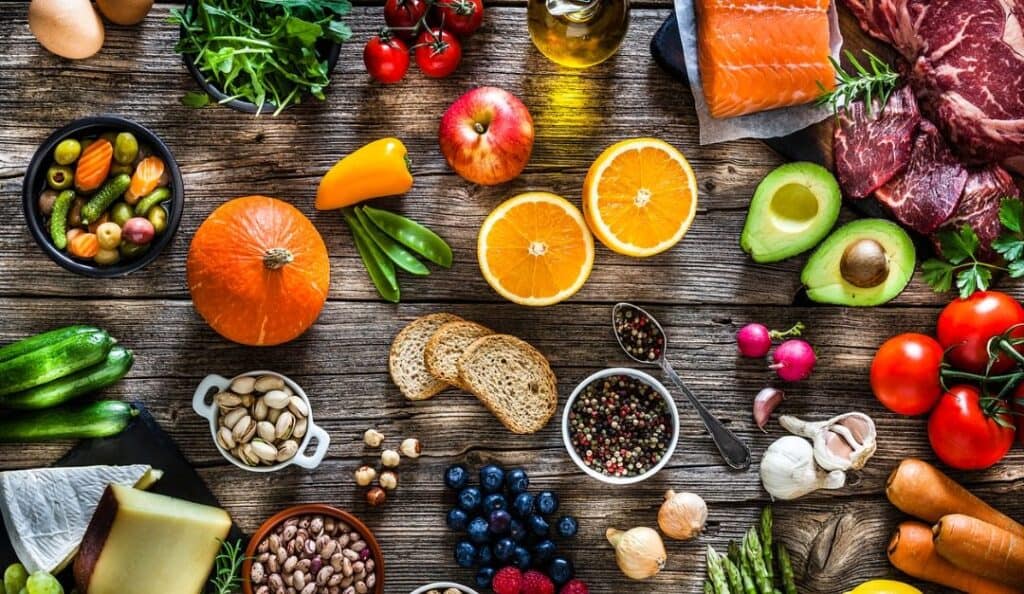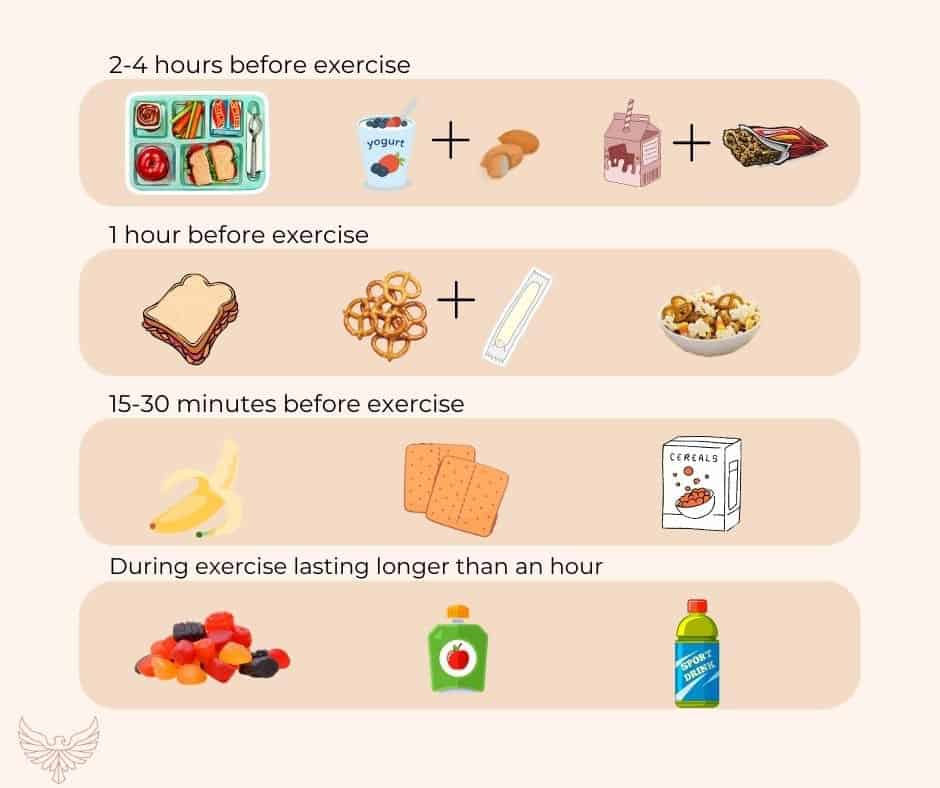Health and Performance
To play at our best, we need to be at our best. Nutrition is a key component that provides what our bodies and brains need to run, react, and perform in challenging environments. As young athletes begin to increase their interest and activity levels in competition, a healthful diet is foundational for growth, academic and athletic performance. A healthful diet meets energy and nutrient needs while promoting a positive relationship with and enjoyment of food. Dietitians are food and nutrition experts that can help navigate healthful eating patterns for growing athletes.
Food as Fuel
Have you ever heard that exercise burns calories? Well, that's because calories are a measure of energy that's given off as heat! Our food becomes fuel which gets ‘burned’ to provide energy to our bodies. You might notice that your body temperature heats up as you jog, dance, run, jump or play. Protein and carbohydrates provide 4 units of energy (calories) per gram while fat provides 9 units of energy (calories) per gram.
These food sources become the fuel our body uses to keep us moving, breathing, and doing the things we enjoy. The more energy we use to run, jump, and cheer for our teams the more energy we need to take in to meet our needs. Nutrition plays an important role in exercise performance as it provides the fuel to help our bodies play and recover.

Importance of Proper Nourishment
As we increase our activity level and build muscle, we will need to ensure we are fueling to meet our needs properly. Without enough fuel, we will feel fatigued, have decreased attention and focus, and be more likely to get injured. In teen athletes, improper nourishment can affect performance in school and sports and growth and development.
Food provides nutrients like vitamins, minerals, and antioxidants. Vitamins and minerals are used up as enzymes and cofactors for metabolic reactions that produce energy. Therefore without good nutrition, we won’t be able to produce as much energy and will likely see decreased performance. Growing athletes will need these nutrients to build strong bones, muscles and maintain adequate nutrient status for health. A healthful eating pattern includes fruit, vegetables, grains, protein and fat sources that provide nutrients to promote health and performance.
Proper Nutrition for Pre-Workout
Creating a nutrition strategy around your practice schedule can boost your performance and enjoyment during exercise. There are two factors that can best support our performance nutrition goals: timing and nutrient composition. When exercise begins, blood supply is redirected from the digestive organs to bring oxygen to the working muscle. If there is food still being digested during exercise, we will likely experience discomfort and be unable to use that food to fuel. Planning snacks around the timing of exercise can help avoid this. Snacks or meals 2-4 hours before exercise should contain protein, carbs, and fat, while snacks closer to exercise should focus on carbohydrate intake. Simple carbohydrates are the quickest to digest, providing the fastest source of energy. Below are some samples of snacking strategies to use.
A snack eaten 2-4 hour before exercise…
A snack eaten 1 hour before exercise…
A snack 15-30 minutes before exercise..
During exercise lasting longer than an hour
Proper Nutrition for Post Workout
Recovery is just as important as practice! We want to be able to perform well each time we practice or compete. Exercise is a beneficial stressor on our bodies. With good recovery this stress creates adaptations that allow us to be faster, stronger, and more skillful athletes. Nutrition can provide the materials our muscles need to recover and replenish the nutrients used up to see those positive changes.
After exercise is complete, replenishing what was lost is a primary goal. Focus on hydration and carbohydrate replenishment within the first 15 minutes of exercise.
Within the first hour after completing exercise a balanced snack or meal can be used to maximize recovery. This should feature carbohydrates, protein and fat. If choosing a snack, ensure it is higher in protein to provide the materials that muscles will need to build.
When exercising in heat or during extended periods of time that causes heavy sweating, electrolytes will need to be replenished. A salty snack/ meal, or a sports drink can provide these nutrients.

Body image
Athletes train their bodies to become tools of speed, agility, and power. Different sports require different functions. Quick sprints require explosive and powerful lower body movements. Throwing a ball with speed and accuracy requires an upper body strength. The shapes of our bodies allow us to do the sport we love to the best of our abilities. As athletes, bodies are likely to change as training schedules change, and weight can fluctuate based on hydration. A dietitian can be beneficial to help you understand what these changes mean, and how to best support your body through them.
Training, recovery, and measuring performance can bring our attention to our bodies throughout the day. Being mindful of movements, injuries and fueling needs are positive attention. Concern over weight gain, appearance, or inadequate performance can cause a negative view of bodies. A dietitian can help navigate these concerns and create a pattern of healthful eating and intentional fueling.
More about Unbound Recovery in Manhattan, KS:
Unbound Recovery in Manhattan, KS is an outpatient organization that focuses on helping individuals who struggle with disordered eating and eating disorders, body image concerns, and chronic dieting behaviors. Our therapists and dietitians specialize in eating disorder treatment and have completed training and continuing education to assist individuals with these issues. We understand that recovery is a difficult process and taking the first step in seeking help is frightening. Practitioners at Unbound Recovery believe in providing empathetic, compassionate, and comprehensive care and have a collaborative approach between nutrition and therapy providers. We have immediate openings for both nutrition and therapy appointments and serve individuals either in-person or virtually within the state of Kansas. Unbound Recovery accepts most major insurance plans. Contact our office today to get started and learn more information! Currently, we are accepting new clients at both our Manhattan, KS and Topeka, KS Locations!
Unbound Recovery| 1201 Poyntz Avenue| Manhattan, KS| 785-510-3008| info@unboundmhk.com

About the Author:
Kaylee Marmion is a graduate student and dietetic intern at the University of Kansas Medical Center. A proud K-State alumni, Kaylee considers Manhattan her home and has completed a portion of her internship at Unbound Recovery under the supervision of Amber Howells, PhD, RDN, LD. Kaylee plans to get her masters degree in dietetics and become credentialed as a dietitian in the coming years.
Reviewed by Amber Howells, PhD, RDN, LD